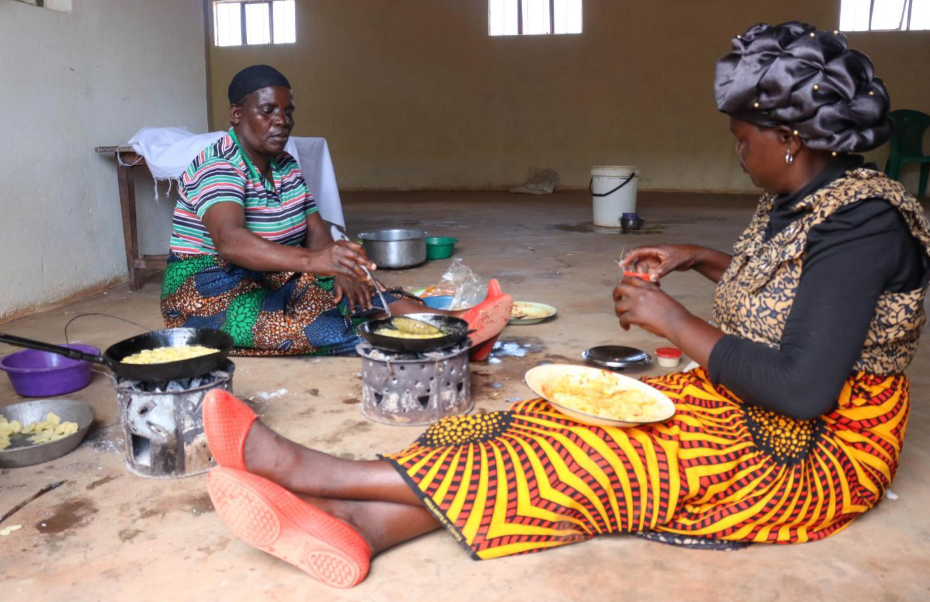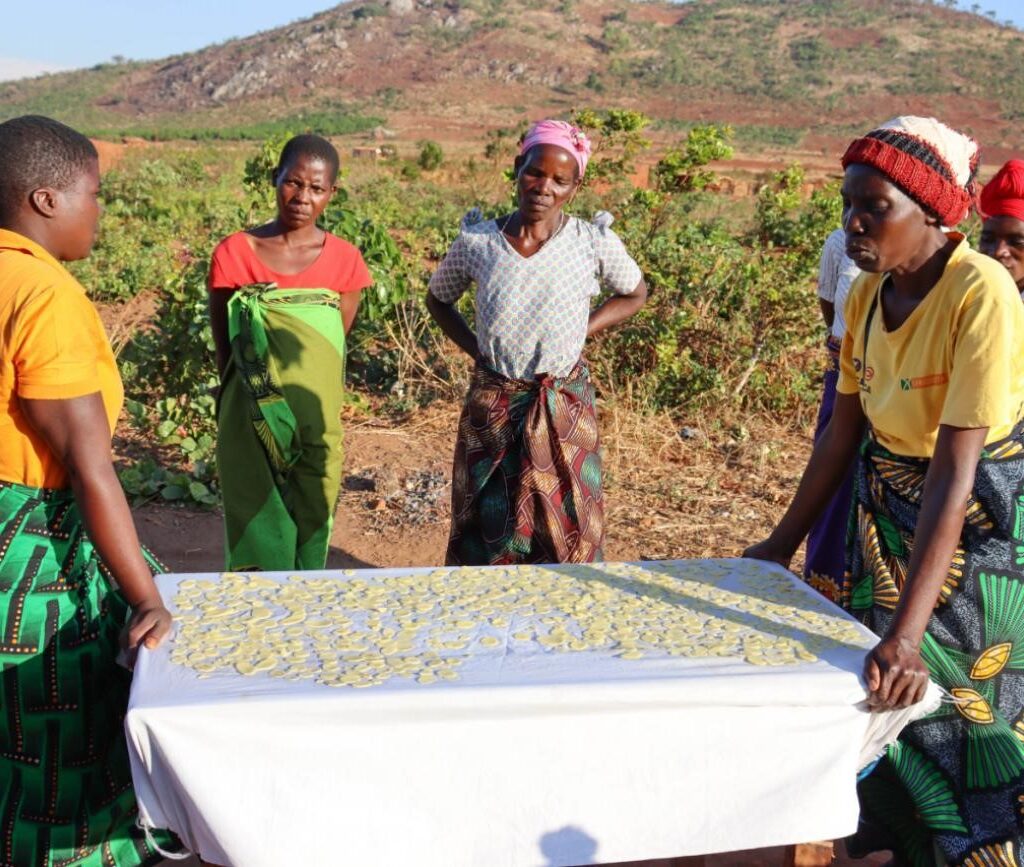Chamaji and Unyolo areas in Mzimba District are synonymous with Irish Potato farming and this crop cultivation has long been a cornerstone of the area’s local economy. The two regions are among the Irish Potato supply hubs of the famous Jenda Trading Centre Market. However, a recent training on crisp processing, provided through the ‘Empowering Vulnerable Populations through Climate-Smart and Agro-Ecological Practices’ project implemented by SPRODETA, has redefined how farmers are capitalizing on their harvests.
The 20-member Tilutirire Crisp Production Group, chaired by Chawezi Moyo, the shift from selling raw potatoes to producing crisps has been a revelation.

“We started production this year after receiving training in crisps processing. Since then, we have realized there are more profits in processing Irish potatoes than selling them raw,” Moyo said. “One big potato can produce a pack of crisps that sells for MK500. We never imagined making such fortunes from Irish potatoes before.” The group’s journey has been rapid. From an initial purchase of a 20-litre pale of potatoes for MK10, 500, which after processing yielded MK21, 500 in crisp sales. They then scaled up to processing two pales, earning them MK49, 000. “At first, the demand outpaced our supply because the locals loved the taste of our crisps,” Moyo explained. “Our ambition is to grow the business, acquire a crisp-making machine, and produce on a greater scale so we can reach markets beyond our community.”
“Previously, we would sell a pale of potatoes at MK6, 000. Now, that same pale can generate over MK20, 000. Sometimes ignorance prevents people from profiting from the sweat and we are a living testimony,” Moyo reflected. Some members inspired by the training, have begun processing on their own. Lydia Moyo from Kasitomu Village decided to try it independently after harvesting her Irish potatoes from seeds provided through the project.
“As a trial, I processed a small amount and sold out within a day. Since then, I have increased production, and after five attempts, I have made around MK252, 000,” Moyo who packages her crisp in MK1, 000 packets said. Moyo has used the profits to purchase a bag of fertilizer for her tomato farming business, a significant investment that would not have been possible with raw potato sales.
“Selling raw potatoes would have only made me MK50, 000. This business is changing my life. Before, I depended on seasonal farming and struggled financially. Now, I earn money daily,” she said. The ripple effects of crisp production are also evident at Sekererani Cooperative, where Marietta Phiri leads the Crisp Processing Committee. Her Group of 11 members has made MK80, 000 in just two months by processing and packaging crisps priced between MK200 and MK1, 000 to suit a variety of customers. “With processing, we have generated MK80, 000 from one pale of potatoes, which would otherwise sell for just MK10, 000 to MK12, 000. The profits are immense,” Phiri said. Beyond the group activities, Phiri also processes crisps independently. Selling at a nearby Unyolo Primary school. “I processed two small basins and made MK14, 000. My goal is to scale up so I can raise enough money for my children’s school fees,” she said.
Both cooperatives and individuals share a common vision: to expand production, acquire machines, and reach larger markets with certified, labelled products. Their goal is to generate higher incomes to build resilient and sustainable livelihoods.

